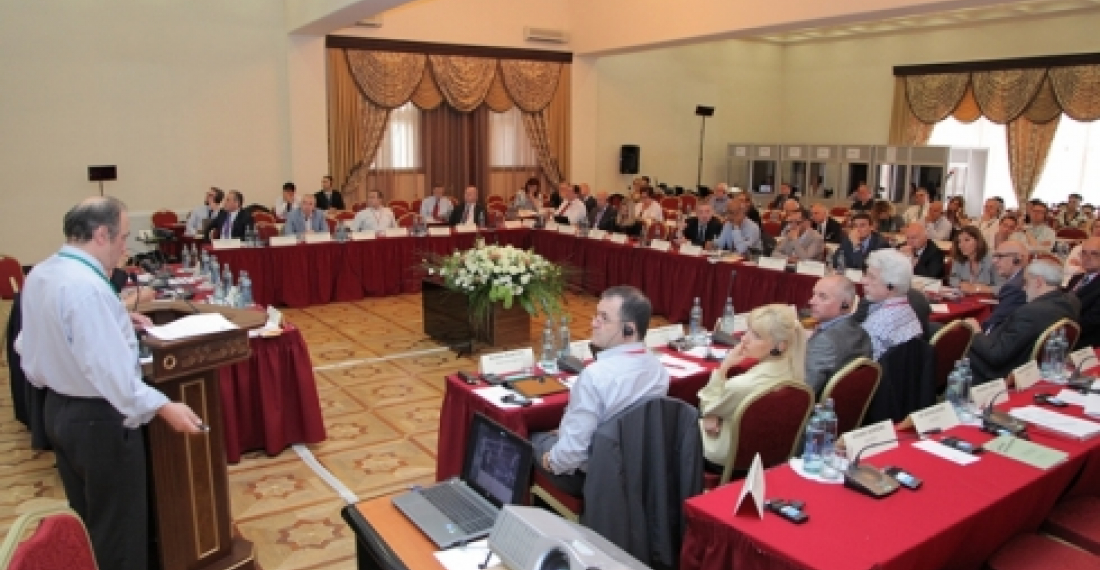"Civil society is the conscience of the South Caucasus States and over the last two decades has played a key role in the political development of Armenia, Azerbaijan and Georgia". This was stated by the Executive Director of LINKS (Dialogue, Analysis and Research), Dennis Sammut, when addressing the closing session of the 89th Rose-Roth Seminar, organized in Yerevan by the NATO Parliamentary Assembly together with the National Assembly of Armenia. Dennis Sammut said that despite their common background the three countries were now following different political trajectories. Yet what happens in one is always closely watched in the others, and positive trends in one country can also influence the others.
The speaker said that political parties in the South Caucasus remain in most cases either weak or dysfunctional, usually lacking clear political platforms and serving as power bases for individuals. On many occasions in all the three countries, civil society has stepped in at crucial moments to fill the vacuum left by politicians. Politics in the region was also impacted by external developments, including the different international arrangements of the three countries, as well as by developments in the conflicts region.
Speaking about the current situation in Azerbaijan Dennis Sammut said that the clampdown on civil society and independent media in Azerbaijan is a matter of very serious concern for those who care about the well-being of the region. The wave of repression started shortly after President Putin's visit to Baku in September 2013, and the Presidential elections the month after. This was not a coincidence. Since then dozens of activists have been imprisoned or have gone in exile. Dennis Sammut appealed to the government of Azerbaijan to reverse this trend and said that how the forthcoming Parliamentary Elections in Azerbaijan in the autumn are conducted will provide a definitive proof of the government's intentions.
In contrast, Dennis Sammut said that the peaceful change of government through the ballot box that occurred in Georgia in October 2012 is a landmark event of huge importance for the whole region. This was to the credit of all the Georgian political forces, but most of all to Georgian civil society that had laid down clear red lines which no Georgian political force dared cross.
Dennis Sammut said that the fact that all the major political forces are present in the current Armenian Parliament is a positive sign. Armenian civil society is now playing an increasing role in moving the political process in the right direction, despite constraints. Armenia too will have a chance to prove its intentions in election in the next years.
Dennis Sammut called on the European Union to move quickly to finalise its contractual arrangements with the three South Caucasus states. In the case of Georgia the Association Agreement signed last year provided an excellent basis for future co-operation. He called on the six EU member states who have not yet ratified the Agreement (France, Spain, Greece, Austria, Belgium and the Netherlands) to do so speedily so that the full provisions of the Association Agreement can come into force. As regards Armenia and Azerbaijan new agreements are also under discussion. Although they will not be fully fledged Association Agreements these agreements should not be strictly technical either. Respect for human rights and human dignity must be reflected in these agreements, and yes this was a choice that Armenia and Azerbaijan will have to make, regardless of whether you call it a civilizational choice or not.
The speaker appealed to European politicians to engage more with political parties in Armenia, Azerbaijan and Georgia through mentoring and experience sharing. There was also a need to rethink engagement with local civil society to make sure that the relationships are based on the current realities.
The speaker also called for more engagement by the EU in resolving the conflicts in the region. Referring to the Karabakh conflict Dennis Sammut said that the EU supported the work of the Minsk Group, and indeed the Minsk Group and its co-chair are doing very important work. But one should not treat the Minsk group as a sacred cow. Their work needs to be continuously scrutinised, they should be open to opinions and suggestions, and if necessary a nudge every now and then to make sure they remain properly focused.
In conclusion Dennis Sammut said that the three South Caucasus countries should move ahead with political reforms to improve their political systems and make them more inclusive. Constitutional changes are on the table in Armenia and Georgia and this was an important opportunity to engage in a wide public debate on the future. A similar exercise is also overdue in Azerbaijan. These initiatives should be home grown - outsiders can only provide encouragement.
Dennis Sammut said that despite all the problems facing the region he was optimistic - a new generation is emerging that has a much clear vision of what it wants the future to look like and is ready to question all the certainties of the past. To them belongs the future of the region.
The Panel discussion was chaired by Tevan Poghosyan, a member of Parliament from Armenia. Sergei Minasyan, Deputy Director of the Caucasus Institute also spoke during the session. The interventions were followed by questions from the members of parliament present.
Source: commonspace.eu
Photo: NATO Parliamentary Assembly in Yerevan closed on Saturday 20 June 2015 with a debate on political developments and civil society in the region. (picture courtesy of the National Assembl;y of Armenia).







